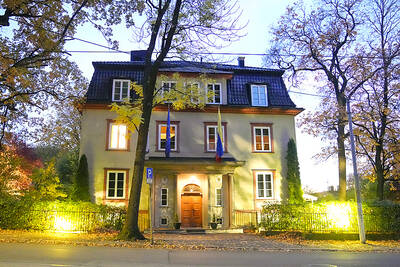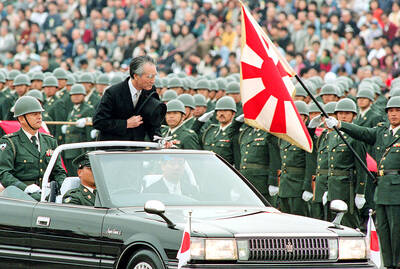A Chinese navy hospital ship was to set sail on Thursday to visit 11 nations, including Vanuatu, where Australia has warned Beijing against building a military base.
During the tour, the Chinese People’s Liberation Army Navy ship Peace Ark is to provide humanitarian assistance and free medical aid and conduct exchanges, including opening the ship for visits, the Chinese Ministry of National Defense said.
The Peace Ark’s humanitarian tours have become a sign of China’s outreach efforts and Beijing’s ambitions of gradually expanding its military influence abroad.
China and Vanuatu last month denied media reports that Beijing had approached the South Pacific nation, which has a population of 280,000, about building a permanent military presence there.
Australian Prime Minister Malcolm Turnbull said at the time that Australia “would view with great concern the establishment of any foreign military bases in those Pacific island countries and neighbors of ours.”
Turnbull on Monday said that Australia would negotiate a security treaty with Vanuatu, just weeks after he warned China against building a base there.
The Peace Ark last year stopped in the Horn of Africa nation of Djibouti, where China has its first overseas military base and where rivals such as the US, Japan and several European nations also have a permanent presence.
In 2015, the ship docked at a port outside Peru’s capital of Lima, its first-ever call at a South American port.
Such goodwill visits have been the mainstay of US diplomacy in Latin America for decades.
The ship, which has 300 beds, eight operation rooms and a medical helicopter, has carried out such missions to 35 nations and regions since it was commissioned in 2008, providing free medical assistance at its stops, according to state media.

The Venezuelan government on Monday said that it would close its embassies in Norway and Australia, and open new ones in Burkina Faso and Zimbabwe in a restructuring of its foreign service, after weeks of growing tensions with the US. The closures are part of the “strategic reassignation of resources,” Venezueland President Nicolas Maduro’s government said in a statement, adding that consular services to Venezuelans in Norway and Australia would be provided by diplomatic missions, with details to be shared in the coming days. The Norwegian Ministry of Foreign Affairs said that it had received notice of the embassy closure, but no

A missing fingertip offers a clue to Mako Nishimura’s criminal past as one of Japan’s few female yakuza, but after clawing her way out of the underworld, she now spends her days helping other retired gangsters reintegrate into society. The multibillion-dollar yakuza organized crime network has long ruled over Japan’s drug rings, illicit gambling dens and sex trade. In the past few years, the empire has started to crumble as members have dwindled and laws targeting mafia are tightened. An intensifying police crackdown has shrunk yakuza forces nationwide, with their numbers dipping below 20,000 last year for the first time since records

EXTRADITION FEARS: The legislative changes come five years after a treaty was suspended in response to the territory’s crackdown on democracy advocates Exiled Hong Kong dissidents said they fear UK government plans to restart some extraditions with the territory could put them in greater danger, adding that Hong Kong authorities would use any pretext to pursue them. An amendment to UK extradition laws was passed on Tuesday. It came more than five years after the UK and several other countries suspended extradition treaties with Hong Kong in response to a government crackdown on the democracy movement and its imposition of a National Security Law. The British Home Office said that the suspension of the treaty made all extraditions with Hong Kong impossible “even if

Former Japanese prime minister Tomiichi Murayama, best known for making a statement apologizing over World War II, died yesterday aged 101, officials said. Murayama in 1995 expressed “deep remorse” over the country’s atrocities in Asia. The statement became a benchmark for Tokyo’s subsequent apologies over World War II. “Tomiichi Murayama, the father of Japanese politics, passed away today at 11:28am at a hospital in Oita City at the age of 101,” Social Democratic Party Chairwoman Mizuho Fukushima said. Party Secretary-General Hiroyuki Takano said he had been informed that the former prime minister died of old age. In the landmark statement in August 1995, Murayama said